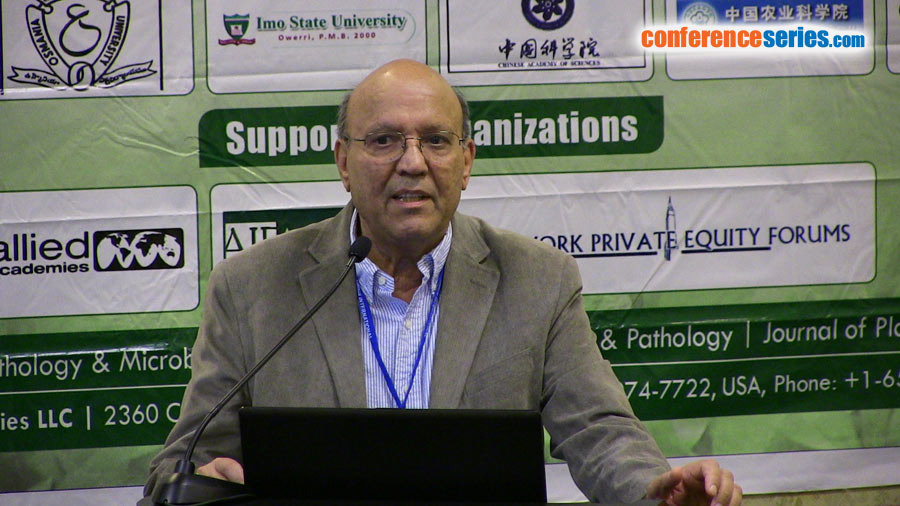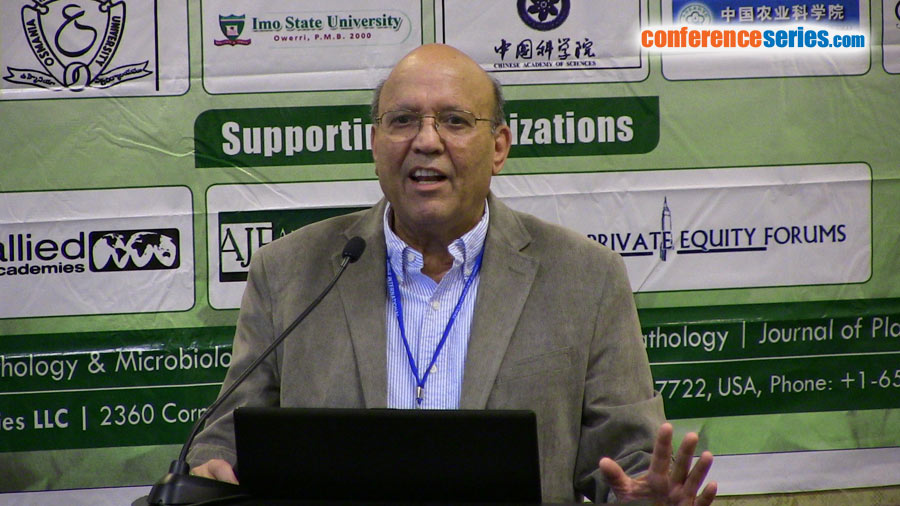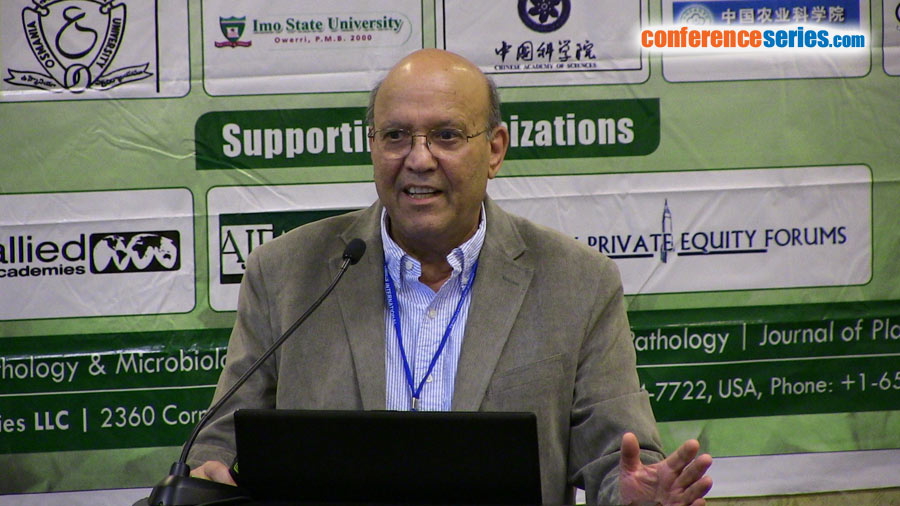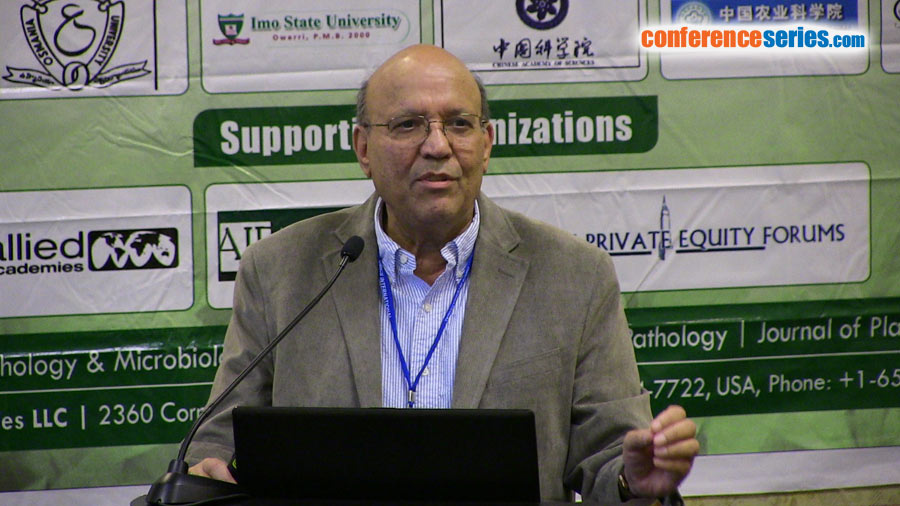
Desh Pal S. Verma
Ohio State university, USA
Title: Linking Environmental Signals to Epigenetics via TOR Kinase controlling Plant Growth
Biography
Biography: Desh Pal S. Verma
Abstract
Plants respond to a given environment controlling their growth and productivity. Accordingly, a variety of environmental signals affect translation and transcription machineries and adjust the plant growth allowing it to adapt to the new conditions. A central regulatory system composed of TOR Kinase is involved in multiplexing these signals and controlling the rate of translation and transcription (particularly rRNA). TOR sends signals to the ribosomal protein RPS6 via S6 Kinase. We demonstrated that RPS6 may have a novel function in plants via its interaction with histone deacetylase 2B (AtHD2B) that belongs to the plant-specific histone deacetylase (HD2 family). Both RPS6 and HD2B were localized in the nucleolus. We have shown that RPS6 directly interacts with the rRNA gene promoter. This suggests that the interaction between RPS6 and AtHD2B may play an important role in linking TOR signaling to rDNA transcription (which makes 98% of RNA) in plants. This is consistent with mutation in rps6b that results in decreased root growth and reduction in 18S rRNA transcription. Over expression of both AtHD2B and RPS6 exhibited down-regulation of pre-18S rRNA synthesis with concomitant decrease in some of the ribosomal proteins transcription. This study suggests a new paradigm for controlling rDNA transcription in plants, in which TOR may be involved in an epigenetic silencing of the rDNA transcription via its downstream signaling component S6K/RPS6, and this mechanism involves HD2B. Such an interaction can provide a direct link between stress signals and the regulation of translation and transcription machineries controlling plant growth under a given environment.





